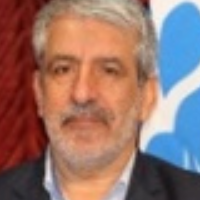The expressive miracle of the Qur'an in the story of Yusuf (AS), from the perspective of polyphony or freedom of expression
In the linguistics of the text of a story, in which different characters are present, according to Bakhtin's theory of polyphony, it conveys different words arising from different beliefs, the rule of polyphony and freedom of expression. An approach that is a tool for expressing reality and highlighting texts. For example, in Qur'anic stories, quoting the words of characters who have different and sometimes anti-right beliefs is a sign of the rule of "polyphony" and the Qur'an's approach to freedom of expression. In this article, he has gone to Surah Yusuf (7), which contains "Ahsan Al-Qasas" (Yusuf / 3) and is full of different words, and with a descriptive-analytical method, and explaining the key words of this story, he has analyzed the polyphonic phenomenon in this story. And it is shown that in the dialogue of this story; Expressions such as Ya Abate" and " Ma'aza Allah" in the words of Yusuf (AS) and "Ya Bonay" and "Sawwal" and "ejtaba" in the; Yaqub's remarks and some of Yusuf's brothers' emphatic sayings, the interpretation of "Akrami" and "Masva" in the beloved speech of Egypt and the phrase "Hita Lak" of Zuleykha arise from different beliefs and worldviews and the quotation of these same words is the same. Without exception, one of the aspects of the Qur'an's expressive miracle is in showing the rule of polyphony in this story, and it conveys the Qur'an's approach to freedom of expression.
-
The Irony of Fakhr Razi's Complaining Style to Sheikh Abdul Qahir Jurjani in the Subject of Metonymy (Emphasizing Intellectual Implication)
Elham Baboli Bahmeh, Mohammadebrahim Khalifeh Shoshtari*, , Ali Najafi Ivaki
Iranian Association of Arabic Language and Literature, -
Analysis of semantic domains of words in the Holy Qur'an, a case study Surah Al-Waki’ah
Mina Azimifar, Abbas Eghbaly *, Rohollah Saiiady Nezhad
Journal Linguistic Research in the Holy Quran, Spring-Summer 2024



